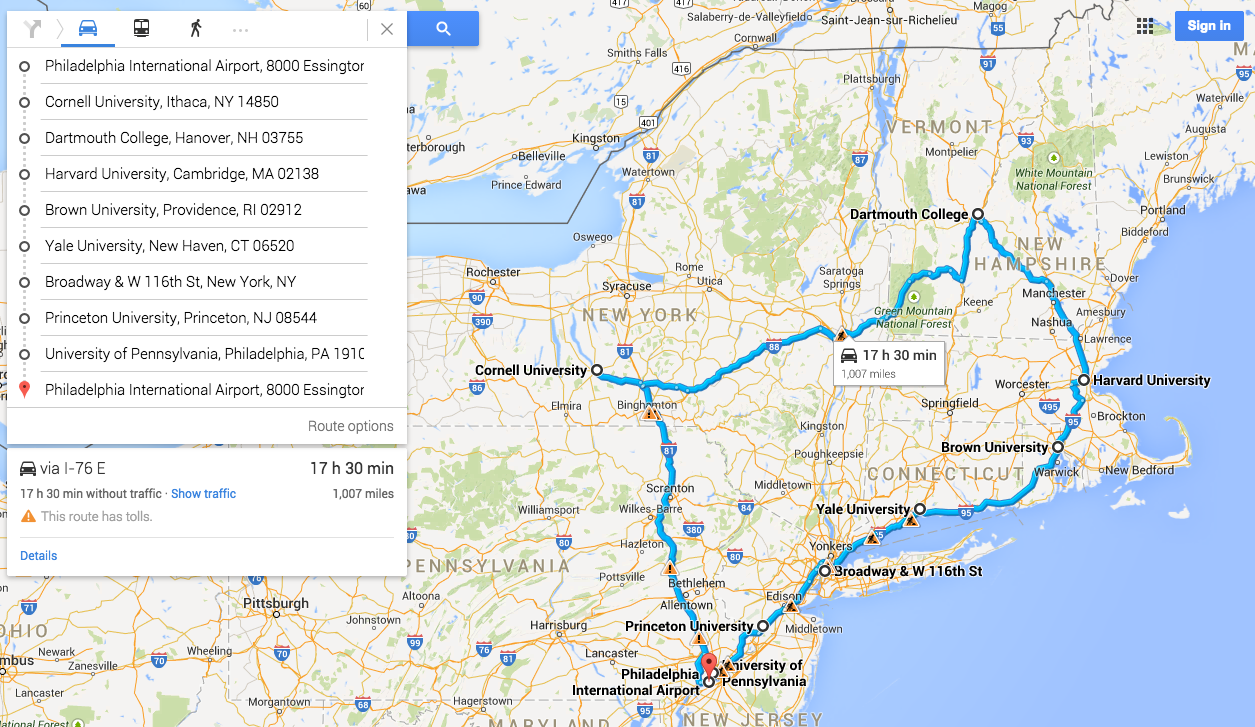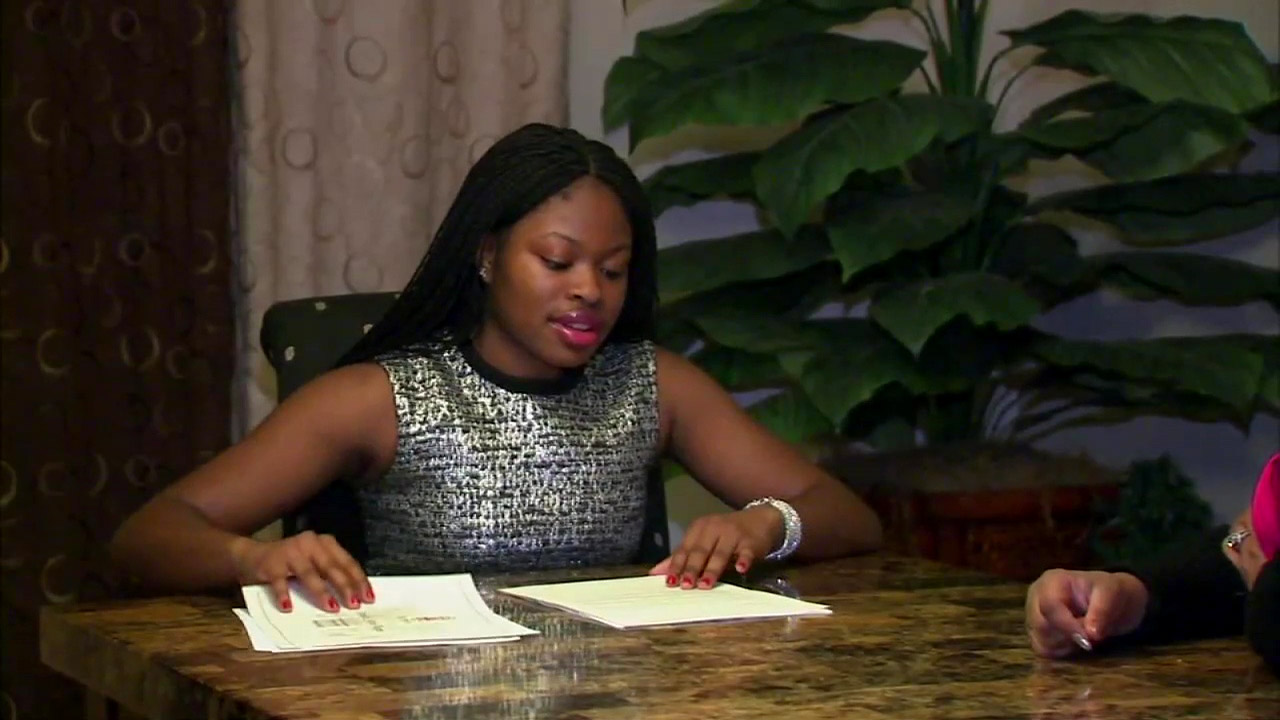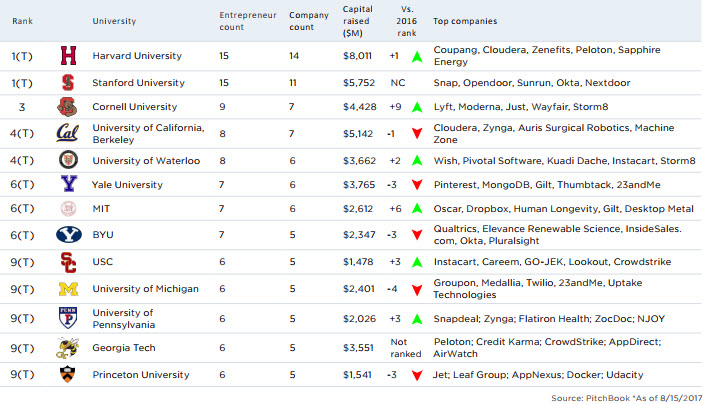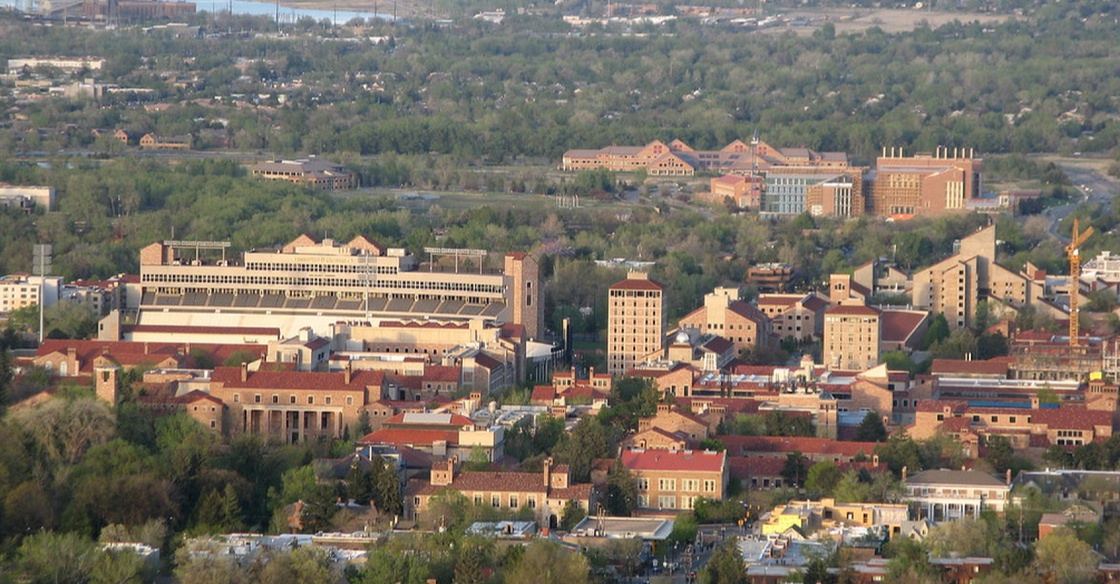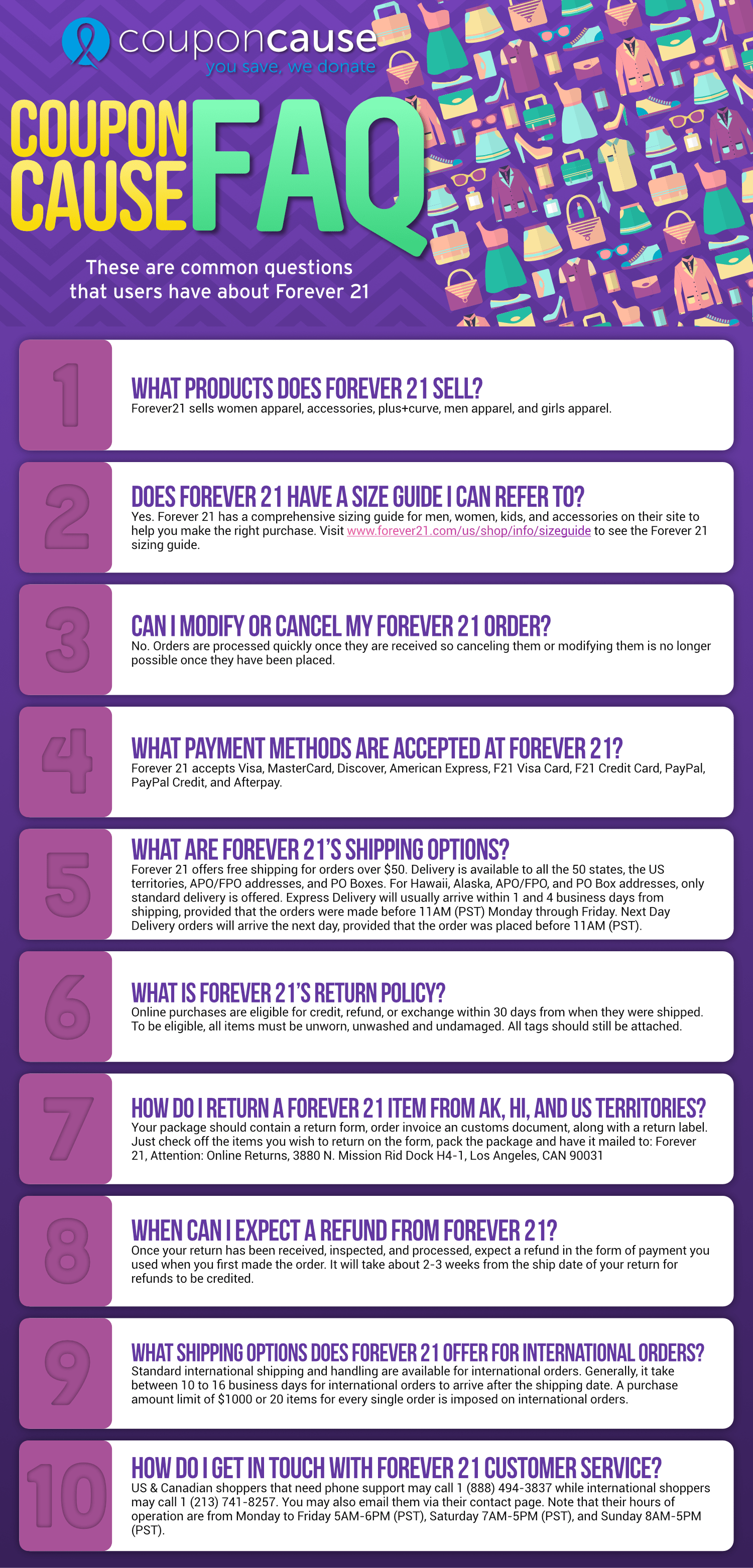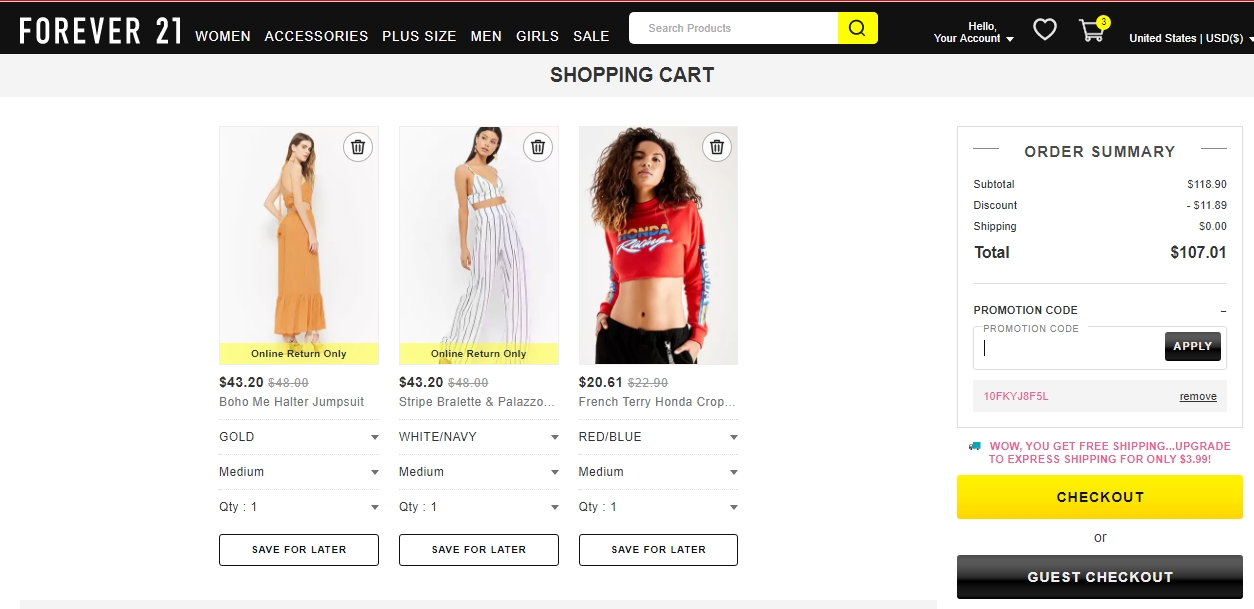Lastly, and of debatable importance, the perceived "prestige" of public universities differs from that of private colleges. Public universities typically place lower in the college rankings than private schools, and frequently have less selective admissions criteria. Private colleges may employ more distinguished faculty or publish influential academic research more often.
Notably, some public colleges and universities carry as much prestige as the more exclusive private schools. Another major difference between public and private colleges is the cost of attendance. Public universities are heavily subsidized by state governments, which enables them to charge lower tuition rates to students. In-state residents receive favorable tuition rates at public universities based on the premise that their tax dollars fund the state governments. Private colleges, on the other hand, are more expensive because they rely more heavily on students' tuition payments to cover their operating expenses.
Public colleges and universities are almost always less costly to attend than private schools. The truth is being a big fish in a small pond comes with many advantages. Being an "A" student with high standardized test scores in a public high school can help your child stand apart. In addition to all of the extra attention you'll get from teachers as one of the building's superstars, you'll also be able to bring the tangible credential of class rank to the college admissions table. Many of the most selective colleges in the country draw the bulk of their freshman from the top-10% of high school classes. For example, at Swarthmore 93% of first-year students were top-10 finishers, at MIT this figure is 95%, and at Washington University in St. Louis "only" 84% earned this designation.
Now, most elite private schools can get around this by not submitting class rank information, but those students do not escape being ranked against their classmates who are applying to the same elite schools. In contrast, public school students usually deal with far less internal competition at particular colleges during the application process. If Duke is your dream school, and you have the stats that make you a strong applicant, you don't have the added worry of having to edge out the seven prospective Blue Devils within a row of you in Calculus class. Private colleges and universities may be more costly to attend; however, they frequently offer more substantial tuition discounts than do public universities. Both public and private colleges can provide federal financial aid to students, but private institutions typically have more money available to fund grants and scholarships. Public universities, which tend to be larger in size, are better able to offer work-study positions to a greater number of students.
While private colleges are generally more expensive, their ability to offer more attractive financial aid packages can sometimes make them more affordable than public universities. An Ivy League school is a prestigious college or university in the United States. This league includes eight schools in the northeastern part of the country.
Seven of the Ivy League schools are colonial colleges or post-secondary schools founded prior to the American Revolution. Founders created the remaining college in this league after the American Civil War. Ivy League schools typically offer students extensive educational resources and high-quality courses. They often have low acceptance rates, meaning the admissions process may be competitive. Many private colleges, such as liberal arts colleges, offer only a narrow range of academic majors from which to choose.
Public universities, meanwhile, usually offer a much wider array of classes and degree programs. These highly prestigious private universities are known for their top-notch academic programs, as well as their hefty tuition rates. Many students dream of attending one of these schools, but the low acceptance rates make it tough to obtain an Ivy League education. Although Cornell University has the highest acceptance rates of all Ivy League schools, this does not mean that it's an easy school to get into.
To be a competitive applicant for any of these eight prestigious institutions, you cannot slack off when it comes to your applications. Start planning your acceptance strategies early, which means studying hard at school and planning ahead for your standardized tests. If you have not been involved in an extracurricular activity since childhood, plan to seriously commit to an activity as early as you can. Choose something you love to do as this will be evident in your application components. Most importantly, do not choose to go to an Ivy League school for appearances. Choose a program you actually want to attend and graduate from, rather than a program that will look good on your CV.
Prestige and social status do not necessarily translate into better educational fit for you. Choose happiness and invest in your education in a school you truly want to attend. Tuition is one of the biggest factors to consider when deciding between private and public colleges. Though public schools are funded via state and federal programs, some private schools maybe surprisingly affordable, depending on what they have to offer and what you may be interested in studying. Private schools are funded via tuition and private donors, but they may offer significant scholarship and work-study opportunities that help lower the cost of attending. There is a common belief out there that students hailing from private high schools have better odds of getting into Ivy League colleges.
There are many folks who believe that if they don't send their children to fancy private schools, they will be at a significant disadvantage when they apply to Harvard, Dartmouth, Princeton, and Brown. Students hailing from private schools do not have better odds of getting into highly selective colleges — like the Ivy League colleges — than students hailing from public schools. Clearly attending a school of Harvard-Westlake's ilk can put you in good standing come admissions time.
The counselors at these schools are on a first-name basis with admissions offices at the finest universities in the country and that can undoubtedly work to your advantage. On the other hand, being an "A" student with high standardized test scores amidst a sea of comparable, or even superior students, can be a harrowing experience. One could argue that there is value in learning to walk with giants—after all, law school, med school, or a high-powered job in a Fortune 500 company will involve just that. There may be validity to this line of thinking, but one must also recognize that not every kid is ready to be thrust into cutthroat academic competition at the tender age of 14 or 15. Further, despite the success of the class at large, if your kid was the 7th most talented University of Pennsylvania-hopeful at Harvard-Westlake, they may have been handed a rejection letter. At a less competitive public or private high school, it's quite possible their Quaker quest would have ended differently, assuming they possessed the same test scores and placed near the top of their class.
It is by no means true that a private school is always better than a public school, and it is true that public schools can often be more diverse than many private schools. However, the cost-benefit analysis of any particular school must be carried out with a particular student in mind. The true value of a school is what it offers to that student, not just what it offers in terms of college admissions. The true value lies in what the school offers with regard to a student's life-long learning. Applying to private school, despite the hefty price tag, might be the best thing you've done yet.
Although you might assume that private colleges are academically stronger than public colleges, take a look at the reputation of all departments and programs within said institutions and how they compare to one another. Many public schools offer excellent programs or majors with reputations that may be stronger than that of the college overall. Ivy League schools are private colleges and universities that offer students high-quality academic programs. Understanding Ivy League and similarly ranked schools can help you determine which is the right choice for you when seeking an undergraduate or graduate degree.
Choosing the right type of learning environment for your needs can also help you develop a professional network while in school, supporting your future career advancement. In this article, we explain what an Ivy League school is, discuss their history, outline the benefits of attending one and provide answers to frequently asked questions about Ivy League schools. If you're living in the same state as a Public Ivy—or can establish residency near your school of choice before college—it's probably themost affordable wayto get an outstanding education.
Nonetheless, you'll want to apply to a variety of colleges, including some public schools that are lower on your list and private schools that may be a financial or academic reach. It is easy to say "plan ahead", but there is a lot of advantage in knowing what school and program you would like to attend in the future. If you are certain about which school you want to enroll in, it might be wise to apply through the Early Action/Early Decision program. This way, your deadline for application is earlier, but so is your response date. To utilize this opportunity, you must research your school of choice and determine whether you are a good fit for the program to which you're applying. Early Action programs give you an early answer as to where you stand in the admissions process.
According to most recent data, Cornell's acceptance rates for their early decision program is 22.7%! Legacy, donor, and athletic preferences should be stripped out of college admissions too, but when it comes to tipping the scales away from fairness and equity, private schools outweigh everything else. The student body population, campus size, and class sizes are all bigger at public schools.
With many thousands of students enrolled at public universities, class sizes of a couple hundred are not uncommon. The campus environment at public schools is less intimate, with professors less likely to know all of their students' names. The Ivy League is an athletic conference comprising eight private institutions of higher education in the Northeastern United States.
The conference name is also commonly used to refer to those eight schools as a group. The eight institutions are Brown University, Columbia University, Cornell University, Dartmouth College, Harvard University, Princeton University, the University of Pennsylvania, and Yale University. The term Ivy League also has connotations of academic excellence, selectivity in admissions, and social elitism. In addition, Ivy League schools are often viewed by the public as some of the most prestigious universities worldwide and are often ranked amongst the best universities in the United States and worldwide.
All of the Ivy League's institutions place within the top 15 of the U.S. News & World Report college and university rankings; with five placing in the top six. Instead, parents and students who want to understand what a private school education offers them need to look at the process of the education and what it has provided students in order to prepare them for life after high school. The classification "Ivy League" originated in 1937 when sportswriter Caswell Adams referred to a football team's school as an ivy-covered university. At that time, many private colleges had ivy growing on their walls and participated in customary ceremonies where they planted ivy on their campuses.
The term became more prominent in 1954 during the creation of the NCAA athletic conference for Division I teams. The eight private schools formed a league based on their common interests in athletics and academics. Then they signed an agreement on academic standards and football schedules. Today, Ivy League schools have a reputation for academic excellence.
Fourth, admissions offices should redact the name of the school during the admissions process and stop assigning applications by region, as most highly selective colleges do. Context is essential for admissions officers to consider applicants' merits rather than their accomplishments. A file could still contain relevant information about a high school, such as the number of students on free lunch programs, or its student-to-counselor ratio. Going school-blind would not erase context, but it would hide the brand names. Many independent school counselors started in college admissions, often at highly selective colleges; one of the newest members of this rank was a dean of admissions at an Ivy League university just last fall. These high schools are paying not just for experts who know the rules of the game; they are paying for experts who know the referees.
Most independent schools do provide some financial aid, but it often goes to a small share of students. At Marlborough, an independent school in Los Angeles where the cost of attendance is about $45,000, only 20 percent of families receive financial aid, and almost half of those who do still make more than $200,000 per year. About 6 percent of all the school's students come from families making less than $100,000, even though almost two-thirds of American households make less than that.
Students for whom athletics are an important part of the college experience may prefer to attend a public university. The vast majority of Division I athletic teams are from public schools. In addition, due to their larger size, public colleges and universities typically offer a wider selection of extracurricular activities than do smaller private colleges. Let's start with some assumptions here…Your local suburban public high school has a solid reputation.
It offers Advanced Placement courses including AP Computer Science and a host of science, social studies, and foreign language options. The average SAT score at your local school in somewhere between 1000 and 1100. The top 10% of students in each graduating class head to a mix of state schools, often on heavy merit scholarships, as well as to at least a handful of highly-selective institutions. The valedictorian last year was accepted to Stanford and the salutatorian earned acceptance out-of-state at UVA. If you live a middle/upper-middle class lifestyle in Nice Suburb, USA, then this description is likely somewhere in the ballpark of your local public high school.
In general, it tends to be easier for students to start clubs at public schools, which means a wider array of clubs than at private schools. As such, it's often easier for public school students to attain extracurricular leadership roles. At the same time, private school clubs tend to have more structure and oversight, which might be a better fit for your child's personality. For the big picture, many private schools tout particular educational philosophies, whether it's a unique teaching approach or a broader philosophy of education. As you research, you may find a program that feels like the exact right fit for your child's learning goals and interests. Or you might find that your local public school meets your academic expectations just as well.
Each Ivy League college has its own unique accomplishments that make it important. All carry a certain reputation with them, and each school has programs that excel primarily in the medical and law fields, making them some of the most sought-after schools in the world. Their admissions process is very selective, which helps the schools ensure that they only accept the best and brightest. Many famous people have graduated from Ivy League schools, including recent presidents George W. Bush, Bill Clinton, and Barack Obama. This prestige leads many to believe that these colleges are only for the wealthy and elite. Often, companies look for Ivy League graduates as potential employees, usually preferred by law firms, medical facilities, and large corporations.
It has long been coveted to have earned a degree from an Ivy League school. Today, there are other competitors that some claim to be just as good as their Ivy counterparts. Some of these well-known schools include Duke University, Johns Hopkins, MIT, Vanderbilt, and Georgetown University, to name a few. The Ivy League schools are still excellent in both academia and in sports, and they have left a legacy of higher education with an exceptional track record and reputation to go along with them.
You are essentially getting an elite private school education free of charge . If your local public school option isn't strong, and your child is accepted into a magnet school of this quality, then attending is a no-brainer. However, if your public options are good , the choice becomes murkier.
With that, let's switch gears and look at the benefits of attending a top "pure" public institution. Relatedly, many public universities offer special programs or honors colleges, just as several Public Ivies do. Not only do these programs allow your child to obtain a more intimate college experience, they also tend to offer greater academic challenges due to their more selective admissions processes. Some private schools deal almost exclusively with specific fields of study, while public schools tend to have a variety of subjects to choose from. Depending on how specific you want your future career to be, an academic advisor can help with this decision, but so can a campus visit and talking with current students at the school you may be interested in.
One of the biggest differences between public and private schools, particularly high schools, is the size of the student body. In general, public schools tend to be much larger than private schools, which affects various aspects of students' experiences. They're often smaller than traditional Ivy League schools and located in the northeastern region of the U.S.




